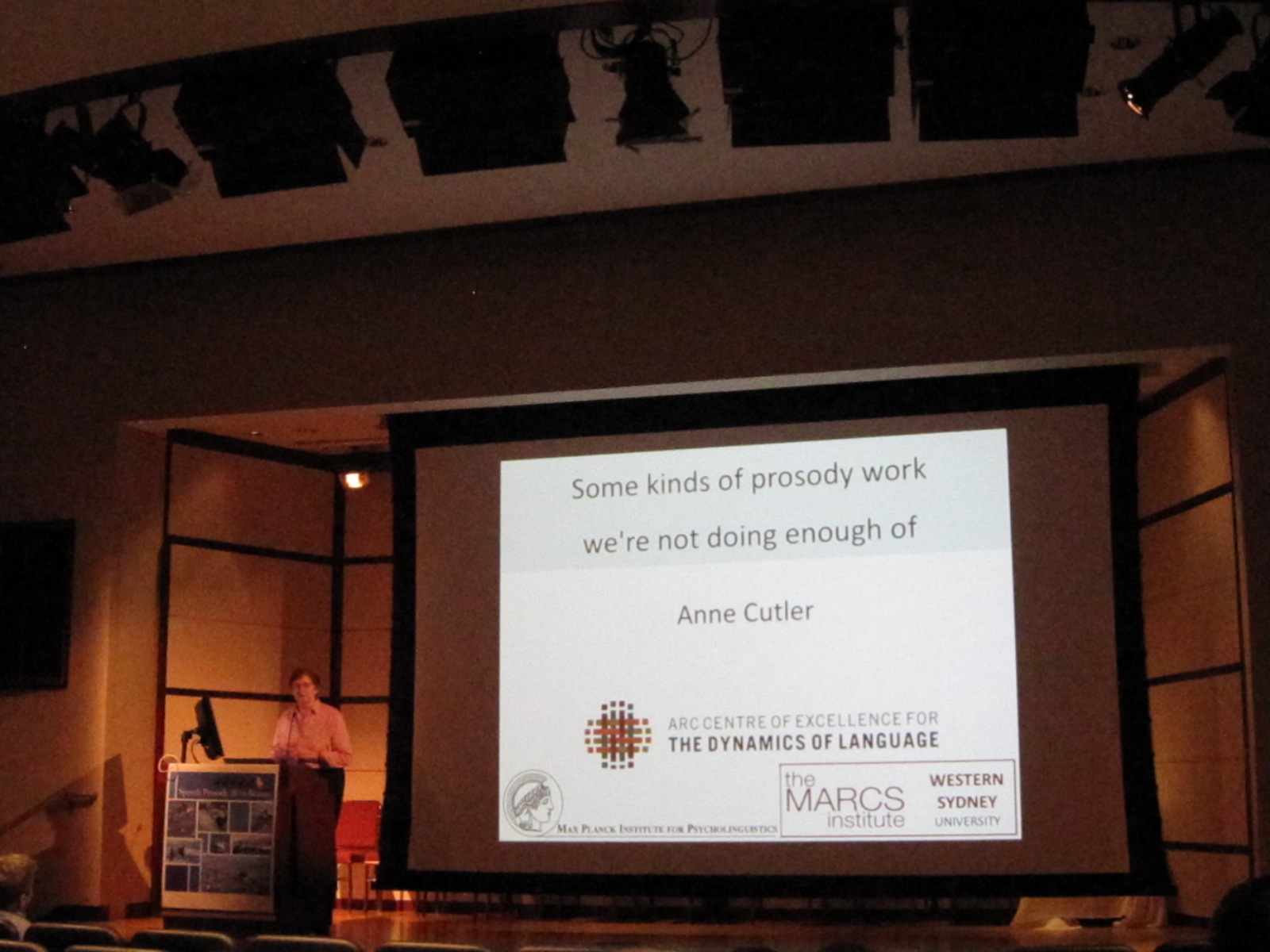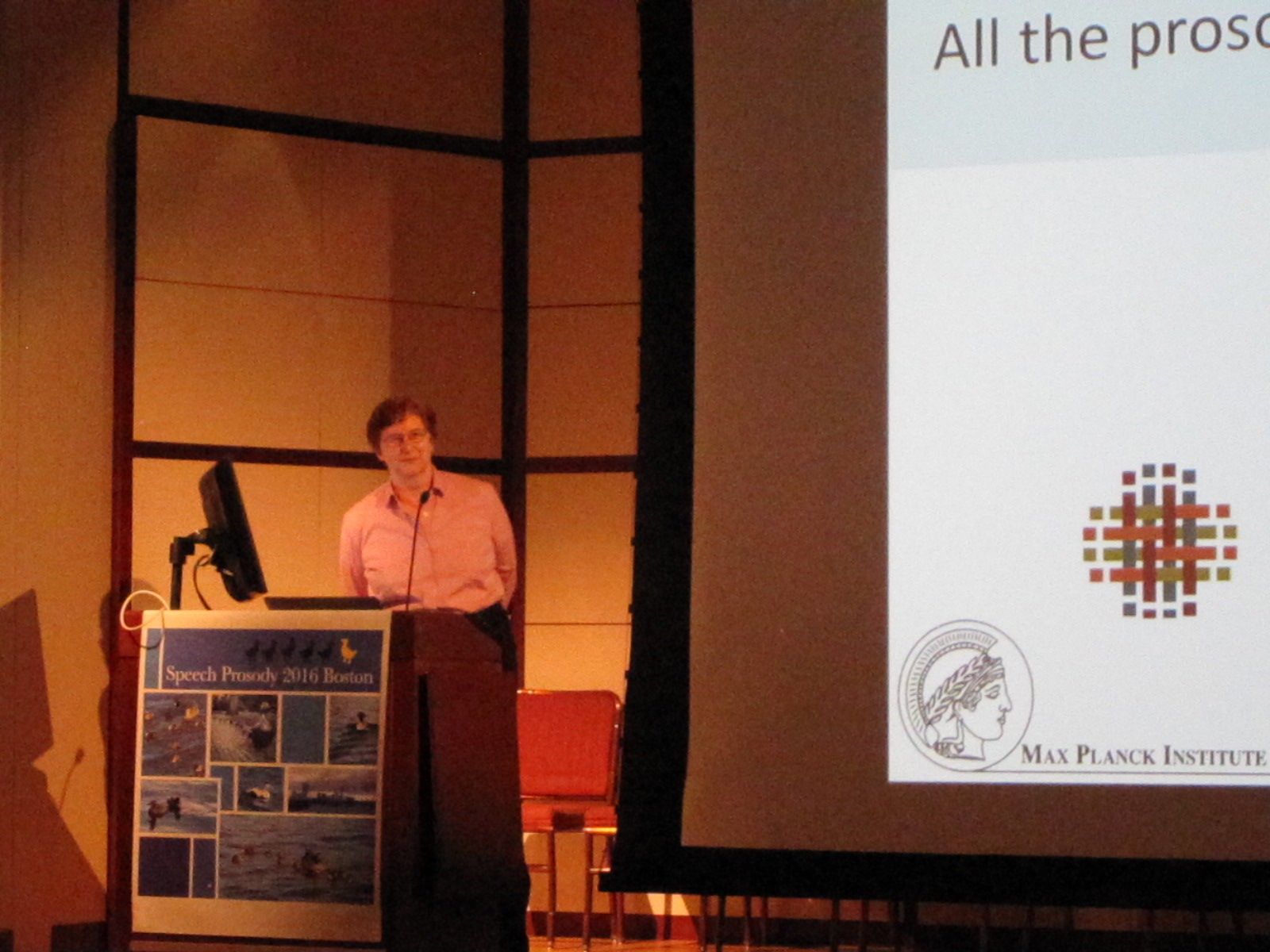A Remembrance of Anne Cutler
« previous post | next post »
The following is a guest post by Martin Ho Kwan Ip, who is now a postdoc at Penn. See "Anne Cutler 1945-2022", 6/8/2022, for some background and links.
I am one of Anne's most recent students (her 44th student from the MARCS Institute in Australia). I met Anne for the first time in 2014 when she was invited to give a talk at the University of Queensland (we had been corresponding by email but had never met until then). Although I was fascinated with languages, I was still an undergraduate student in psychology and foreign languages; I knew next to nothing about speech and was totally unfamiliar with many of the concepts and jargon in linguistics. But her talk was like a story and it was so memorable – she showed us some of the different mental challenges associated with listening (like when she used speech waveforms to show us how gaps between words are not as clear as we think), why different languages are needed to better understand how the mind works when we listen, how infants’ early segmentation abilities influence later vocabulary growth – this was the first language-related talk I had attended and I was just so, so intrigued.
After her talk, my honours advisor Virginia Slaughter and I tried to approach her (Virginia said she would introduce me to Anne), but as usual, she was flanked by many people and we were in a queue waiting for our turn. I don’t remember how long we waited but it was quite a while. When I finally got to present myself and said, “Hello Prof. Cutler, I’m Martin Ip”, she quickly shook my hand and said with great delight, “MARTIN!”, and everyone in the room turned their heads to look at us. Then she said to a guy (who was about to leave the room), “My future PhD student!” That was the happiest day of my early career.
A few days later, I met Anne outside her hotel in Southbank. She asked me if I wanted hot chocolate, but I declined; I guess at the time because of my own sense of politeness. We just sat in a really nice cafeteria and spoke for 3 hours (and neither one of us ordered anything). We spoke about many things, but pretty much everything had to do with speech and language. During that conversation I even chose my dissertation topic. Anne told me I shouldn’t stress too much about writing a full-fledged proposal on my own, that she would never expect this from her student, and this made me feel so very relaxed. As Anne mentioned, doing research is about teamwork. And although I wasn’t even her student yet, I was already getting her advice about doing a postdoc after I graduated.
It is so easy to see Anne as a legend and prominent scientist, for the contributions she has made in the science of speech and language, for the support she has given to all of us in our careers and our research. But as a person, she is what I would think of as a true Aussie – a genuine, warm person with a great sense of humour, a great writer and speaker, occasionally shortening my sentences whenever she proofread my work, nothing too flowery, very honest, and always to the point.
Above all, she saw everyone as her equal. Although we were her students, and she was a big famous professor and a fellow of many prestigious international societies, she still treated us as her collaborators. One time, at a conference in Brisbane, I had a hard time finding her; she wasn’t with the other professors. When I finally found her, she was sitting down having a conversation with two undergrads from UQ, asking them about their career goals and their interests. Later on that night in a phone call, she told me she had a really lovely conversation with those students and thought very highly of them. Anne really cared about people.
My time working with Anne was filled with so many happy memories. I was one of her students who worked in the area called “Cutler’s Corner,” where she would stop by to check on us whenever she arrived at MARCS. We could all just drop by her office anytime to talk to her. No matter how busy she was, she was always generous with her time. Anne was always talking about our research to others and helping find collaborators for her postdocs. As my mentor, Anne gave me the opportunity to choose any research topic; she gave me all the independence to pursue my own interests, let me work at my own pace, and never once imposed her own beliefs. After I came to the University of Pennsylvania as a postdoc, Anne would email me new journal articles from time to time and we would write to each other about speech issues. Occasionally, she would give me life advice; sometimes after saying, “I am your academic supervisor, not your life coach,” she would then offer some words of wisdom that were just what I needed to hear. In a tradition she maintained with all her students, following my graduation from MARCS, Anne gave me a full report and a beautiful diagram of our academic genealogy, how her own supervisor Don Foss created the phoneme-monitoring paradigm when psycholinguistics was still young, how we are all directly descended from Wilhelm Wundt (in only 6 steps), how Jim Jenkins is her “Doktor-Großvater” like she was our “Doktor-Mutter.” Looking back, I feel honoured that she encouraged me to do a project on prosodic entrainment using the phoneme-monitoring paradigm as part of my PhD research; it was the same topic that she worked on when she was a graduate student at the University of Texas. She convinced me that progress in science is incremental.
I’ll always think of Anne when I read articles or attend conference talks about the many areas she’s made significant contributions to, including prosody and perceptual learning. Anne always made psycholinguistics fun. She was not only a great scientist, she was a genuine, warm, and kind-hearted person who truly cared about each and every one of us.
Above is a guest post by Martin Ho Kwan Ip.


Sally Thomason said,
July 14, 2022 @ 11:23 am
Thanks for posting this, Mark. It's excellent — it shows how deservedly significant her impact on many people was.
Natasha Warner said,
July 14, 2022 @ 1:32 pm
What you describe about her reaction on first meeting you is so very Anne! Her enthusiasm, mentoring, and boundless energy. Thanks for telling us of your experience with her.
Julian said,
July 15, 2022 @ 8:12 am
In the Max Planck obituary linked to Mark's 8 June post I noticed this: " Even highly fluent second language users are measurably disadvantaged in their ability to parse continuous speech into its component words. That disadvantage is precisely predictable, as Anne showed experimentally, from the comparative phonology of mother tongue and second language. "
I'd be grateful if anyone can point me to a beginner's guide to this, if possible in the public domain. Thanks
Martin Ho Kwan Ip said,
July 15, 2022 @ 6:16 pm
RE: Julian
I recommend Chapter 9 (Second-Language Listening: Sounds to Words) and Chapter 8 (Where Does Language-Specificity Come From?) of Anne's book "Native Listening" (2012, MIT Press). Both chapters provide a really clear overview of how listening is, over the course of language development, tailored to the specific structure of the native language, and how this structure affects the listener's processing of a second language with a different phonological system.
Julian said,
July 16, 2022 @ 5:31 am
Thanks for that, Martin
Mark Antoniou said,
July 22, 2022 @ 5:22 pm
That’s awesome Martin. Anne would be grinning ear to ear. She was very proud of you. Keep doing great work.
All the best,
Mark